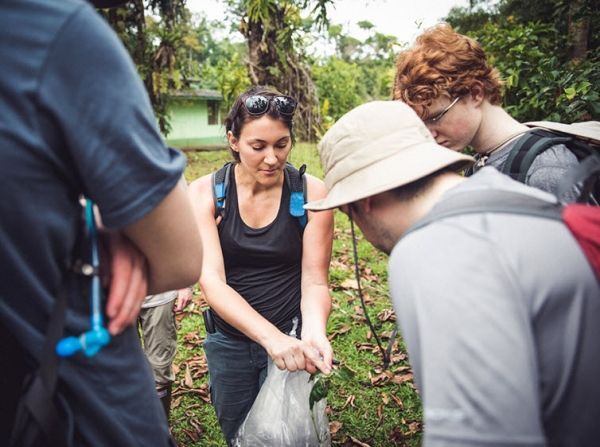Using a 22-year dataset of plant-caterpillar-parasitoid interactions collected within a patch of protected Costa Rican lowland Caribbean forest, scientists report declines in caterpillar and parasitoid diversity and density that are paralleled by losses in an important ecosystem service: biocontrol of herbivores by parasitoids.
The study by College of Science researchers, published in Scientific Reports this week, reveals distressing declines among common caterpillar genera and the ecosystem services provided by their natural enemies.
“Declines in herbivore and enemy diversity, as well as parasitism frequency, are partly explained by changes in climate, including increases in extreme precipitation events and increases in mean temperatures,” lead author of the study Danielle Salcido said.
Read more at University of Nevada-Reno
Image: Doctoral candidate Danielle Salcido, of the College of Science, works with Earthwatch volunteers in Costa Rica, including this team of high school students from Beacon Academy in Chicago, to collect caterpillar, parasite and plant data for research. CREDIT: University of Nevada-Reno


